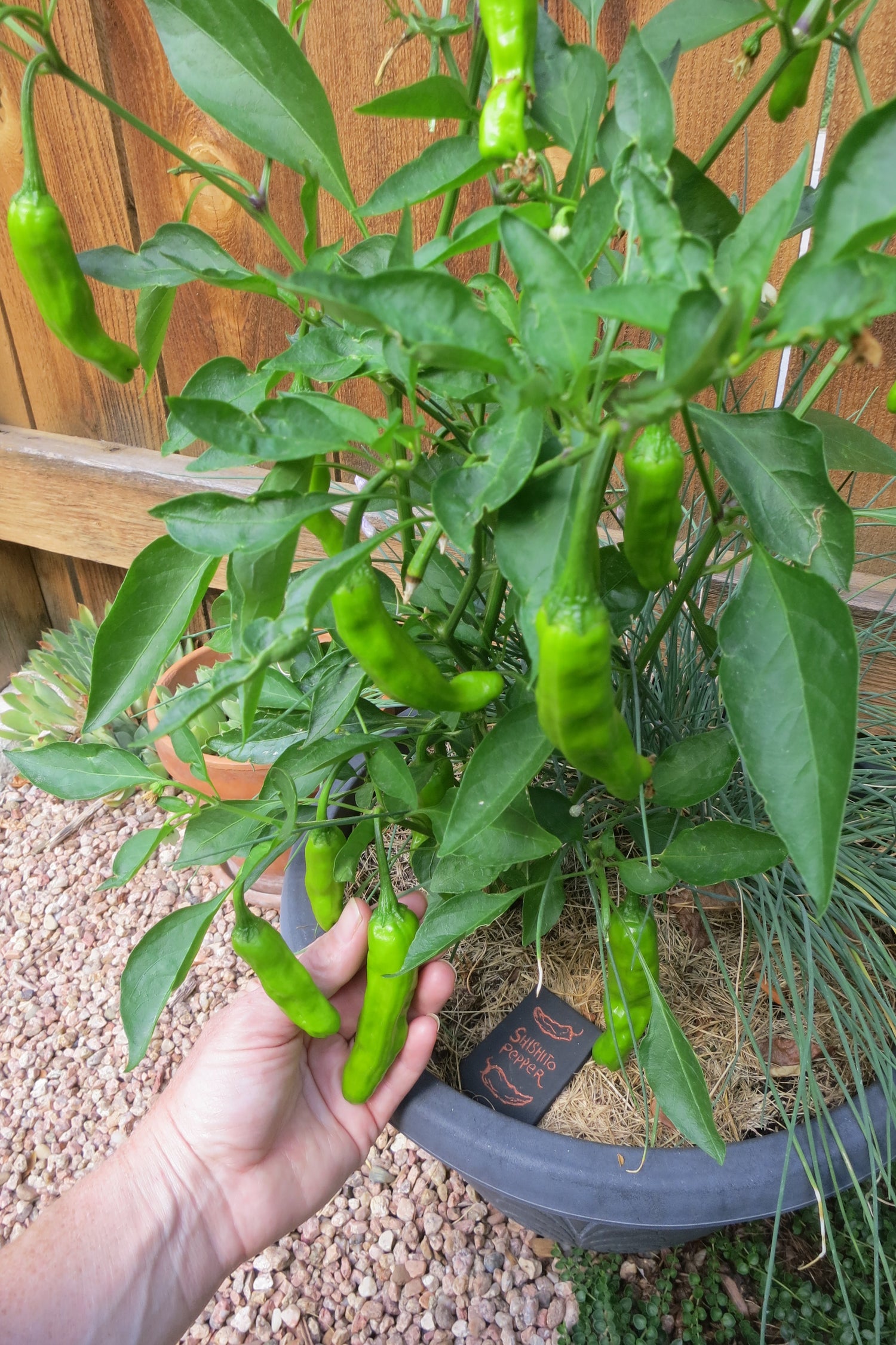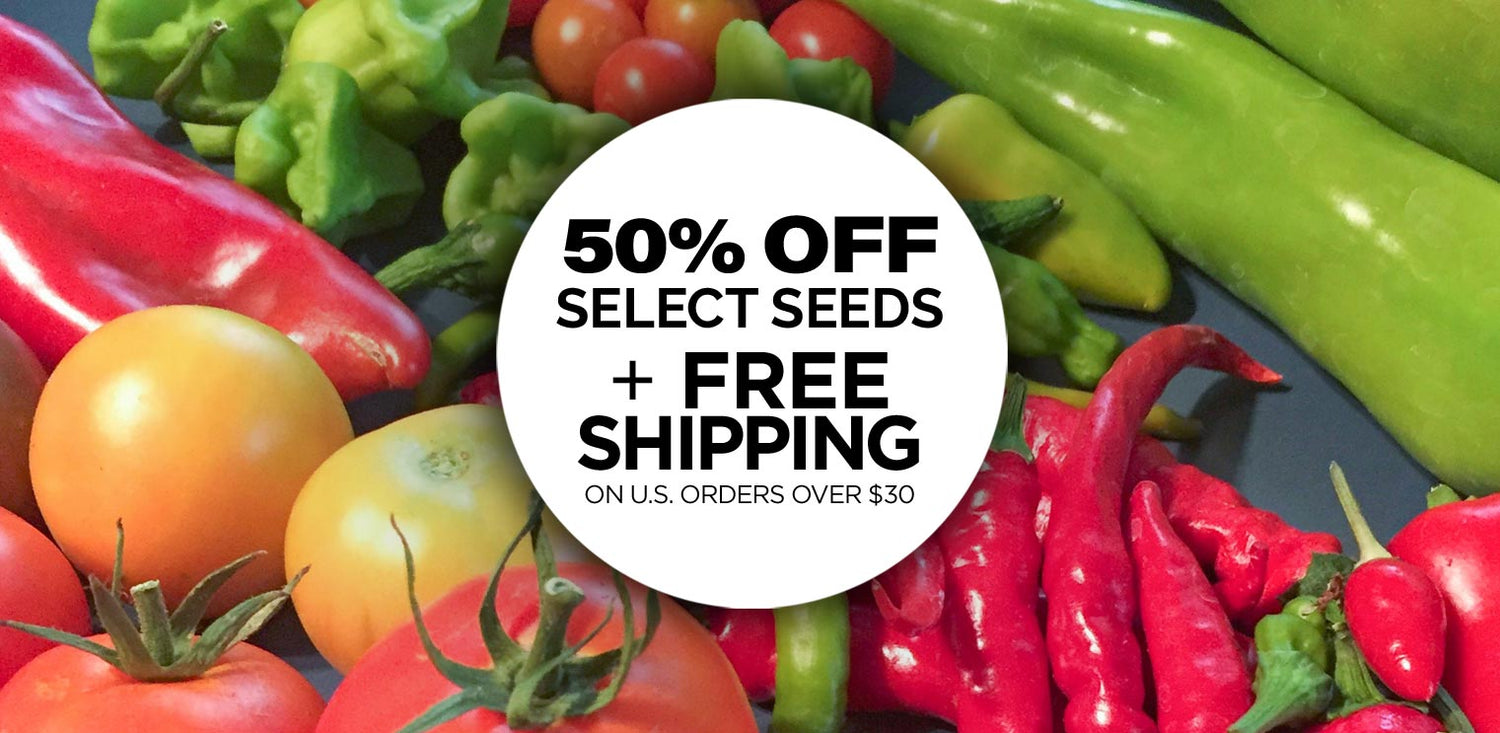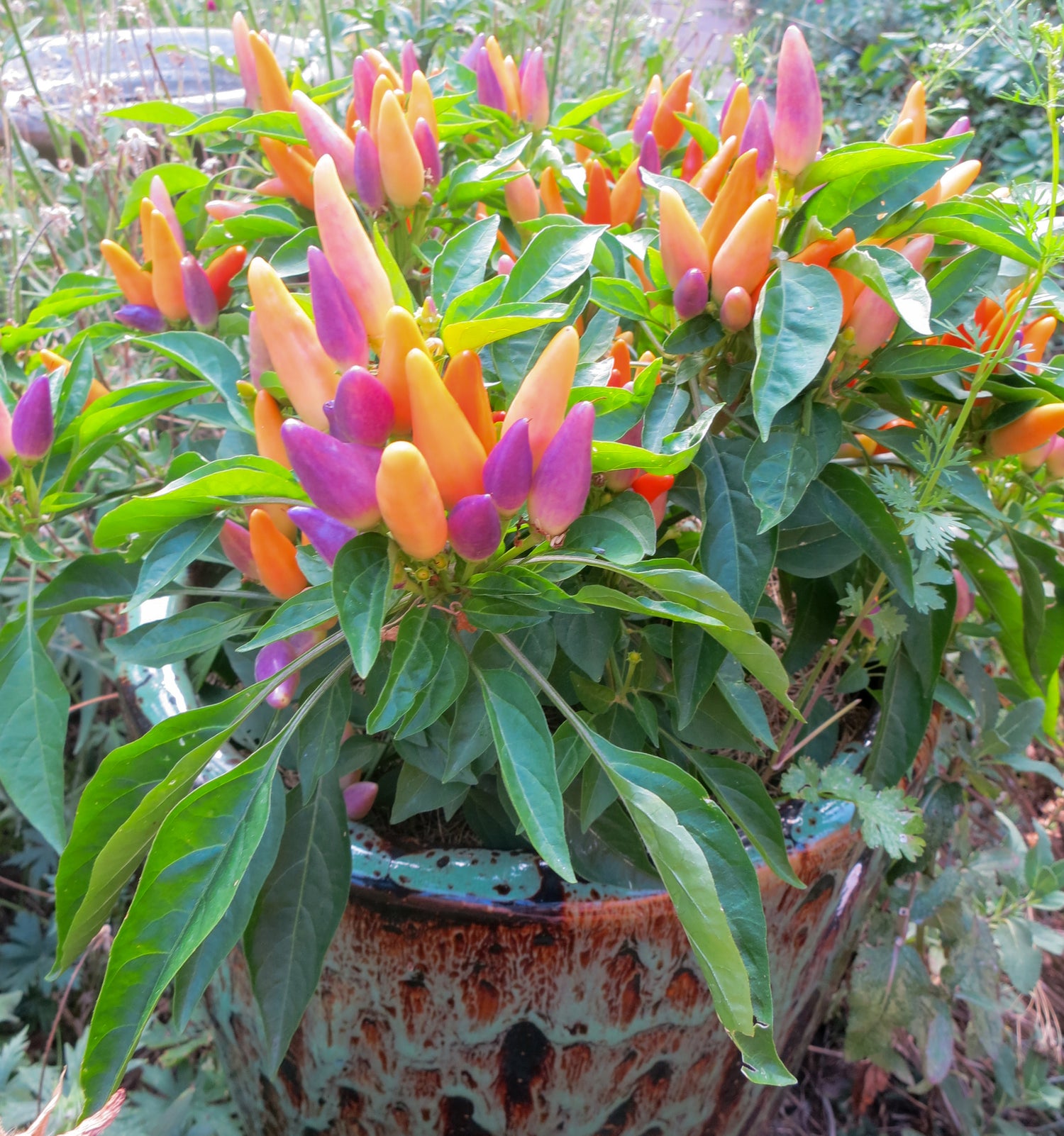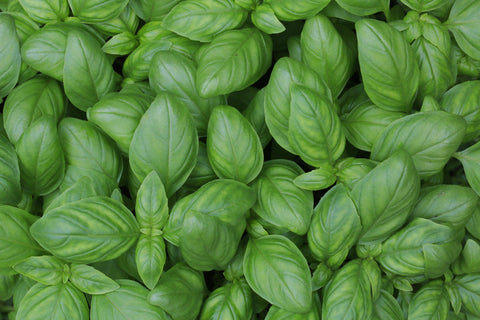
The reason companion planting is so beneficial is not fully understood, but has been noted by farmers and gardeners for many generations. There are some basic concepts that do make good sense. The physical structure of companion plants with tall strong stems may protect your chile plants from wind damage. The root growth of companion plants with deeper root systems can improve the overall health of the compacted soil by opening up channels for better drainage and air exchange. Herbs produce chemical and aromatic compounds that can repel insect pests and deter animal foraging, too.
You can tuck cilantro seeds or basil into large pepper pots, let them go to flower which will attract lots of pollinators and beneficial insects.
Growing bush beans around your pepper plants can also help provide a little bottom shade for the peppers which can prevent sunburned peppers. Make sure to give them proper space as you don't want to completely shade them!
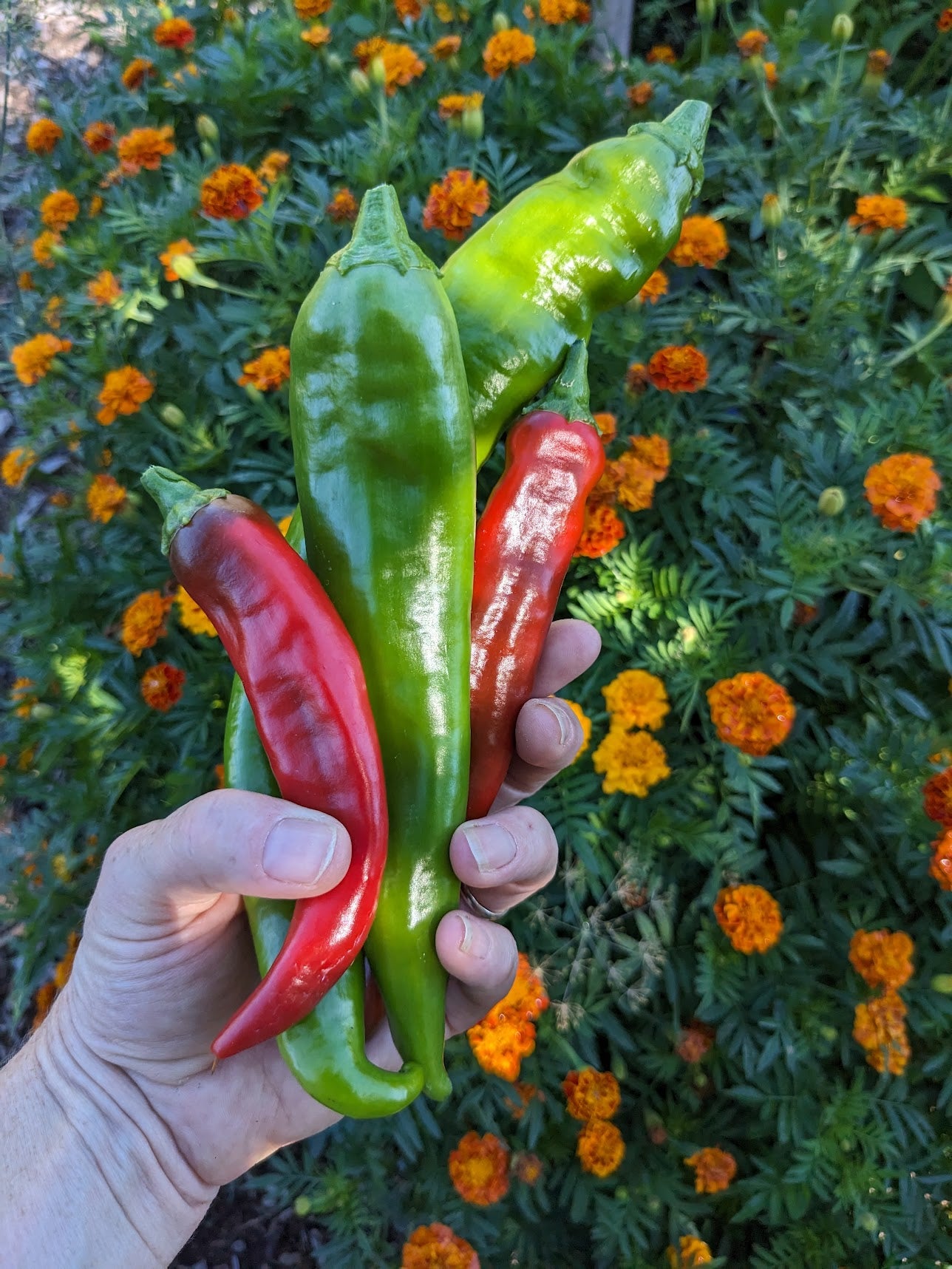
Or grow flowers such as Sunflowers, Echinacea, Lavender, Nasturtiums, Marigolds, and native plants around the perimeter of your pepper garden will attract pollinators and beneficial insects that will help you with pepper pest control naturally.
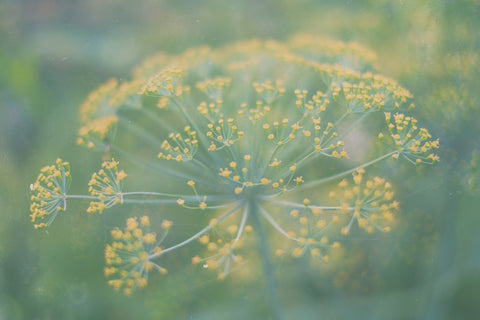
Here is a list of companion plants that are known to benefit peppers:
Basil wards off thrips, flies and mosquitoes. Parsley blossoms attract beneficial predatory wasps that feed on aphids. Marjoram, rosemary and oregano seem to have a helpful effect on peppers. Dill is said to both attract beneficial insects and repel pests. Chives also make great companion plants for peppers.
Tomatoes deter soil nematodes and beetles. Carrots, cucumbers, radishes, squash, and onions and garlic do well when grown in around peppers (although not so close that they completely shade the pepper plants!)
Spinach, lettuce and chard help crowd out weeds due to their short stature and rapid maturation. Beets and parsnips can fill in space and retard weeds as well as keep the soil cool and moist. Corn serves as a windbreak and sun barrier. Beans and peas fix nitrogen into the soil, a necessary nutrient for peppers, and also help block wind and sun. Native plants like Buckwheat can be grown around pepper plants to attract pollinators.
Chile plants don’t like the company of every plant, so avoid planting peppers with fennel or near members of the Brassica family, including cabbage, broccoli, cauliflower, and mustards.
Here in our garden, we have planted cucumbers, eggplant, okra, squash and basil, parsley, oregano and rosemary alongside the chile plants. Adding companion plants to your garden creates a diverse mixture of plants and can provide many benefits for your pepper plants.
Read more about Pepper Plant Companions »
Peppers are easy to grow from seed!
Sandia Seed specializes in unusual and rare pepper seed varieties, so check out our website seed collections for super hot pepper seeds, hot pepper seeds, Hatch chile seeds, and sweet pepper seeds. We also sell Heirloom Tomato seeds which go great with chiles. :) Happy growing!




